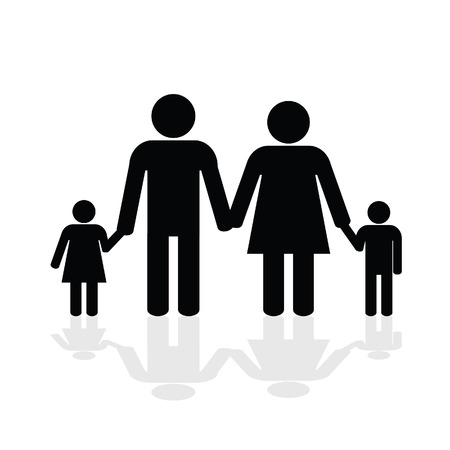Introduction to Bed-sharing
Bed-sharing, the practice of parents and babies sleeping together in the same bed, is a topic that often sparks lively debate among families across the UK. As a new parent navigating life in Britain, I quickly realised how common and culturally varied this sleep arrangement can be. Bed-sharing is far from a new concept—many families, especially those from multicultural backgrounds, have been co-sleeping for generations. In the UK, studies suggest that while not every family chooses to bed-share, a significant number do at some point during their childs early years, whether as a planned approach or simply out of necessity on difficult nights.
For us, as first-time parents adjusting to sleepless nights and learning to care for a newborn far from extended family support, the question of where our baby should sleep became very real. We found ourselves weighing advice from health visitors, friends with different cultural backgrounds, and our own instincts. Some families are drawn to bed-sharing for the closeness it brings, making night feeds easier and fostering a strong parent-child bond. Others may turn to it out of convenience or because its the norm within their culture or community.
In this article, Ill explore how bed-sharing is viewed within multicultural UK families like ours, why some parents choose it, and how safety considerations play a crucial role in these decisions.
Cultural Perspectives on Bed-sharing
Bed-sharing is a practice that varies widely across the UK, influenced by the country’s rich multicultural tapestry. Many families bring with them unique traditions and beliefs regarding infant sleep, shaped by their cultural backgrounds. In some communities, bed-sharing is seen as a way to foster closeness, ensure safety, and make nighttime feeding more convenient. Understanding these perspectives helps new parents in the UK feel more confident about their choices and supports respectful dialogue between families and health professionals.
South Asian Traditions
In South Asian families, particularly those from Indian, Pakistani, and Bangladeshi backgrounds, bed-sharing is often an established custom. It is commonly believed to strengthen family bonds and provide emotional security for babies. Grandparents and extended family may also play a role in caregiving, contributing to multi-generational co-sleeping arrangements. This tradition can sometimes clash with mainstream UK health advice, so open conversations are vital.
African Community Practices
Many African families residing in the UK continue the practice of bed-sharing as a way of maintaining close contact with infants throughout the night. It is often considered important for breastfeeding success and baby’s wellbeing. In some African cultures, it is not unusual for several siblings to share sleeping spaces, reflecting communal values and practical needs.
Eastern European Approaches
Families from Eastern European countries such as Poland, Romania, or Lithuania may also prefer bed-sharing or room-sharing with their young children. These practices are often rooted in traditions that value physical closeness and parental responsiveness during infancy. Although some parents adapt to local UK norms over time, many still find comfort in maintaining their cultural sleep routines.
Comparing Bed-sharing Traditions Across Communities
| Community | Common Bed-sharing Practice | Cultural Reasoning |
|---|---|---|
| South Asian | Parents and infants share beds; sometimes extended family members involved | Family bonding, emotional security, tradition |
| African | Infants sleep with parents or siblings in shared beds or rooms | Physical closeness, breastfeeding ease, communal values |
| Eastern European | Room-sharing or bed-sharing until toddlerhood or beyond | Parental responsiveness, comfort, cultural continuity |
Navigating Differences in the UK Context
The diversity of approaches to bed-sharing among multicultural UK families highlights the need for culturally sensitive support from health visitors and midwives. Rather than prescribing one-size-fits-all solutions, it is important to acknowledge these traditions while offering evidence-based safety information tailored to each family’s background and preferences.

3. UK Guidance and Legal Framework
In the UK, bed-sharing is a topic that attracts careful consideration from both health professionals and policymakers. The National Health Service (NHS) provides clear guidance on safe sleep for babies, with the overarching aim of reducing the risk of sudden infant death syndrome (SIDS). According to official NHS recommendations, the safest place for your baby to sleep for the first six months is in a separate cot or Moses basket in the same room as you, day and night. While many multicultural families may come from backgrounds where bed-sharing is common and culturally significant, it’s important to recognise that UK advice is often more cautious compared to some other countries.
NHS Safe Sleep Recommendations
The NHS strongly advises against bed-sharing if either parent smokes, has consumed alcohol, taken drugs (including medication that causes drowsiness), or is excessively tired. Additionally, bed-sharing is not recommended for premature babies or those with a low birth weight. Instead, placing your baby on their back in their own sleep space is emphasised as the safest option. This approach might differ from practices in parts of Asia or Europe where co-sleeping and shared family beds are considered normal and even beneficial for bonding and breastfeeding.
How UK Advice Differs from Other Countries
Unlike some European nations where guidelines are more flexible or acknowledge cultural variations in sleeping arrangements, UK health authorities prioritise minimising all known risks. For example, Scandinavian countries may offer nuanced guidance acknowledging cultural norms around co-sleeping, while still promoting safety measures. In contrast, NHS advice remains unequivocal: the cot or Moses basket is best for every family, regardless of background.
Legal Considerations and Child Safety
Legally, there is no outright ban on bed-sharing in the UK; however, safeguarding children’s welfare is paramount under UK law. If a health professional feels that a child’s safety may be compromised—such as through unsafe sleeping environments—they are obliged to provide support and advice, and in rare cases may involve social services if serious risks persist. Multicultural families should be aware that what might be seen as normal practice elsewhere could raise concerns in a British context if safety guidelines are not followed.
Conclusion: Navigating Guidance with Cultural Sensitivity
For multicultural families living in the UK, understanding local safe sleep recommendations is crucial—not only for your baby’s wellbeing but also to ensure compliance with local expectations. While it may feel challenging to reconcile cherished traditions with new guidance, open conversations with health visitors or GPs can help you make informed choices that respect both your heritage and your child’s safety within the UK framework.
4. Safety Considerations and Practical Tips
When it comes to bed-sharing in multicultural UK families, safety is always the top concern. While many parents choose to share a bed with their baby for reasons like bonding, breastfeeding ease, or cultural tradition, there are important risks to be aware of—especially the increased risk of Sudden Infant Death Syndrome (SIDS). In my own experience as a new parent, navigating the sea of advice from different cultures and the NHS can feel overwhelming! Let’s break down the key safety concerns and look at some practical, culturally sensitive strategies that many UK families use to make bed-sharing safer.
Key Safety Concerns in Bed-Sharing
| Concern | Details |
|---|---|
| SIDS Risk | The most serious concern. Babies under 6 months are at higher risk if sharing a bed with adults, especially in unsafe sleep environments. |
| Parental Smoking/Alcohol Use | If either parent smokes or has consumed alcohol/drugs, the risk of SIDS increases significantly during bed-sharing. |
| Bedding Hazards | Pillows, duvets, or heavy blankets can cause overheating or suffocation. Soft mattresses also pose a danger. |
| Accidental Overlaying | Tired parents may accidentally roll onto their baby, especially if co-sleeping on sofas or armchairs—this is extremely dangerous. |
| Cultural Practices | Certain bedding or sleep positions traditional in some cultures may not align with current UK safety guidelines. |
Practical Tips from Multicultural UK Parents
- Follow Safe Sleep Guidelines: Always place your baby on their back to sleep, on a firm mattress with no loose bedding or pillows nearby. The NHS and Lullaby Trust have detailed guidance on this.
- Keep Baby Smoke-Free: Ensure nobody in the household smokes around your baby—smoking increases SIDS risk even if you smoke outside.
- Avoid Alcohol and Sedatives: Never bed-share if you’ve had alcohol or taken any medication that makes you drowsy.
- Use Separate Bedding: Some South Asian and African families use lighter wraps or shawls for babies instead of adult duvets. Make sure your baby doesn’t overheat and their face stays uncovered.
- Create a Safe Sleep Space: Many families place the cot right next to the adult bed (known as “sidecar” cots), combining closeness with safety. This is popular among British-Asian parents who want to honour family traditions but follow NHS recommendations.
- No Bed-Sharing on Sofas or Armchairs: It might be tempting during late-night feeds, but sleeping together anywhere other than a flat bed is very risky.
- Involve Family Elders: If grandparents or relatives are involved in baby care (common in many cultures), make sure they’re aware of UK safe sleep advice—even if it differs from home-country practices.
Safety Checklist for Bed-Sharing Families
| Do | Don’t | |
|---|---|---|
| Bedding & Mattress | Firm mattress; no loose bedding near baby; use baby’s own blanket/sleep bag if needed | No soft surfaces, pillows, or heavy duvets near baby’s face/head |
| Parent Behaviour | Sober and alert; non-smoker; well-rested as possible | No alcohol/drugs/smoking; avoid sleeping when overtired on shared surfaces |
| Baby’s Position | Baby on back; feet to foot of bed (or cot); face always clear of covers | No tummy/side sleeping; never let baby get covered by adult bedding |
| Sleep Location | Main bed only; consider sidecar cot for added safety | No sofas/armchairs; no shared beds with siblings/pets |
Remember:
If you’re unsure whether bed-sharing is safe for your family, it’s always best to talk to your health visitor or GP—they understand the diverse ways families live in the UK and can help you find a solution that respects both culture and safety. As I learned first-hand, creating a safe sleep environment is about finding balance between tradition and up-to-date advice!
5. Navigating Family Expectations and Social Perceptions
When it comes to bed-sharing, attitudes within multicultural UK families can be surprisingly diverse. Growing up in an Asian household, I was used to the idea that sharing a bed with parents or siblings was a sign of close family bonds. It felt natural and comforting, especially in the early years of my own parenting journey. However, after moving to the UK and starting my own family here, I quickly realised that local advice often emphasises independent sleeping for babies due to safety concerns.
Within our extended family, there were mixed reactions when we decided to keep our baby in our bed for those exhausting first few months. My mum insisted it was what kept us safe and connected when I was little, but my British in-laws gently encouraged us to use a separate cot, referencing NHS guidelines about reducing the risk of SIDS (Sudden Infant Death Syndrome).
The wider UK community also has its own perspectives. In baby groups or at health visitor appointments, mentioning bed-sharing can sometimes lead to raised eyebrows or even gentle warnings. There is definitely a sense that some traditions from back home don’t always fit neatly with current UK advice, which can leave new parents feeling caught in the middle.
For me, balancing these different expectations meant lots of honest conversations—explaining to my family why we wanted to follow some UK guidelines for safety while still respecting our cultural roots. Over time, we found compromises: using a bedside crib so baby could sleep close by but safely separate, or reassuring relatives that our choices were informed by both tradition and research.
Ultimately, navigating these differing views taught me that every family’s approach is personal. While cultural heritage shapes our instincts and values, being open to new information and adapting as needed can help create a safe and supportive environment for everyone.
6. Supporting Wellbeing: Sleep Solutions for Multicultural Families
Finding the right sleep solution in a multicultural UK household can feel overwhelming, especially when you want to honour your family’s traditions while ensuring your child’s safety. As a parent who has navigated these choices myself, I know it takes patience and support to find what truly works for everyone. Here are some practical suggestions and resources that can help families like yours create a safe, respectful, and nurturing sleep environment.
Open Communication and Flexibility
Start by having open conversations with all caregivers involved—partners, grandparents, or extended family—about your beliefs and concerns regarding bed-sharing. Sometimes, traditions from different backgrounds may clash or cause confusion, but working together to compromise and prioritise safety is key. Consider blending practices, like using a bedside crib (co-sleeper) that allows closeness without sharing the same surface. This option is widely available in the UK and often recommended by health professionals.
Adapting Traditions Safely
If bed-sharing is important to your culture, make sure you follow NHS guidelines for safe sleep: keep pillows, blankets, and stuffed toys away from the baby, ensure the mattress is firm and flat, and never bed-share if either adult has consumed alcohol or smokes. If relatives visit from abroad and expect to share sleep spaces differently, gently explain local safety standards so everyone feels confident about your choices.
Finding Support in Your Community
You’re not alone on this journey! Many multicultural families across the UK are navigating similar challenges. Reach out to local parenting groups such as NCT (National Childbirth Trust), which hosts meet-ups and workshops covering diverse parenting styles. The Lullaby Trust offers detailed advice on safer sleep for babies from various cultural backgrounds. Local children’s centres often run free sessions where parents can share experiences and get guidance from health visitors familiar with multicultural needs.
Embracing Your Unique Family Journey
Remember that every family’s situation is unique. It’s okay to adjust your approach as your baby grows or as your circumstances change. The most important thing is creating an environment where both you and your child feel secure and cared for. By blending cultural respect with evidence-based safety guidelines—and tapping into local support networks—you can foster a sleep routine that celebrates your heritage while keeping your little one safe.


